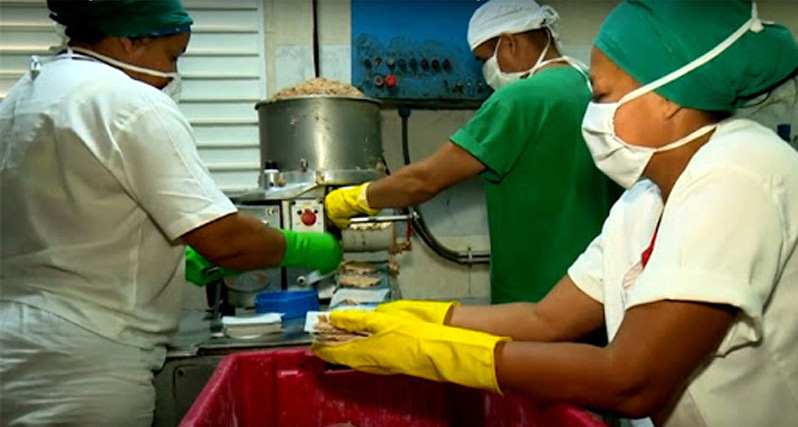According to Marino Murillo, after the implementation of the reform measures, "a group of entities could suffer losses in the first year." The Government "will design solutions to allocate financial resources" to "support them monetarily."
Murillo, head of the Commission for the Implementation of the Communist Party Guidelines, has stated that this government aid program "will entail clear commitments from companies on how to reduce these losses over time and bolster their competitiveness."
Murillo did not say so, but it is inevitable that the adjustment towards more efficiency will mean slashing swollen state staffs, as well as the closure of companies that do not manage to be profitable in the new scenario. Even with favorable exchange rates, huge subsidies, and some very particular accounting, on average 77 state-owned companies have ended up with losses in the last three years. How many will do so when those "props" are removed? As Murillo himself says: "there are companies that cannot withstand a devaluation."
In 2019, the number of employees rose by 102,520. This figure is preposterous in a country where employment fell from 2015 to 2017, and in 2018 increased by just 7,900 workers. If we are to believe the Government, in 2019 employment was up 1,200%.
The most relevant aspect of this mess is that 90,973 people went in to the private sector, while only 11,547 —8,000 of whom are teachers who were rehired after the salary increase— sought work with the State, which undoubtedly shows that the private sector is, far and away, the most dynamic and that with the greatest capacity to create jobs. For every job created by the State, private companies created eight.
The State sector of the economy is divided into a business (productive) part and a budgeted part (health, education, security, and bureaucracy).
The business side, which is where the effect of the new measures will be felt most, employs 1,600,844 people. If we assume a 15% reduction in jobs - due to the combination of company closings and the contraction of workforces – this would result in 240,000 layoffs.
The budgeted side, which must, necessarily, contract as well (de facto, it is already doing so, with the cancellation of temporary contracts), assuming it dismisses only 10% of workers, would produce another 147,000 unemployed Cubans.
In total, and being conservative, to gain efficiency the State sector could lay off some 387,000 workers. I should underscore that this number is a simple estimate, based on the efficiency-related aims of the Tarea Ordenamiento monetary reform measure, and given Cuba's lopsided work component in the productive investment of a country suffering from scarce and obsolete machinery and infrastructure - something that must change if it wants to efficiently participate in international trade.
These people, in the short term, while the State sector revives (if it ever does) can only turn to the private sector in search of work, but with the health emergency, plus the financial measures already announced, which inhibit investment, it will not only not grow in 2020, but by April (with the latest data offered) it had shed some 220,000 workers.
After the Tarea Ordenamiento financial reform initiative and the pandemic, 607,000 Cubans - 13% of current workers - plus the 2,587,881 Cubans of working age who are currently unemployed, could find themselves in a country where, according to Deputy Labor Minister María Molina Gutiérrez, the Government is creating conditions so that "people feel the need to get to work, because prices rise and subsidies are removed." This is just running roughshod over Cubans.
Get to work? Where?
As we saw before, the only area that could absorb this many people is the private sector. The drama could be alleviated by a burgeoning private sector, which depends solely on the Government's determination to create the basic legal conditions for a truly national business community to develop.
The authorities, however, have decided to weaken the state sector without first allowing the private sector to develop. The difference is not a question of numbers, or meat, but rather people who will be left to their own devices unless the State returns to the much-maligned "subsidies and gratuities."
The Government, before restructuring "its own," should free up the only sector that could absorb those people left over, but chose not to.
Murillo said, invoking Leninism: "These people are a labor reserve for the country's programs." This is in a nation where, according to the Constitution, "Socialist State Enterprise is the bedrock of the national economy." But the only way to fulfill this mandate is by repressing private companies, preventing their expansion, or even their inception. It seems that they deem it preferable to have people jobless rather than working outside the State.
These contradictions are a result of wanting to move forward, but without putting one foot in front of the other. To prosper economically without the private sector being set free is like trying to turn lead into gold. This was attempted for centuries, even by Newton! It does not work.
